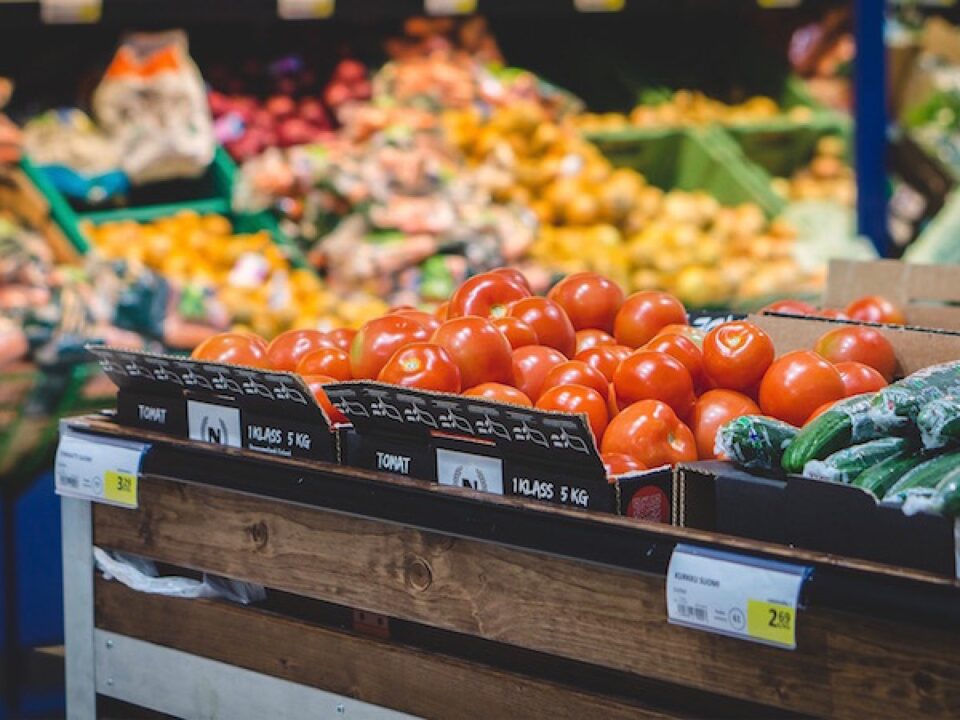
How Vendor Managed Inventory (VMI) Strengthens Supply Chain Resilience and Collaboration
To optimize inventory management, retailers and suppliers are increasingly turning to Vendor Managed Inventory (VMI) tools that transfer the responsibility…
Bona: Building Operational Excellence with Solochain WMS Read the use case

Consumers demand affordable prices and ethical commercial practices, seek quality, traceability and short supply chains and are worried by certain agricultural practices. Recent studies carried out in France have brought to light 3 common habits:
The land of all things organic is the place to be. Organic, local, traceable and vegan food concerns now account for 20% of the turnover of the world’s food industry. Twenty-nine specialist brands such as Biocoop, Naturalia and La Vie Claire recorded more than 25% growth and record store openings in 2017.
After having abandoned these niche markets for a long time, large distributors, in search of new territory, have decided to exploit their potential: new organic and local product references, new product ranges, even the creation of specialized stores such as Carrefour Bio are all in the making. Without a doubt, these new modes of consumption have created a new eldorado.
With the genuineness of local products and the likeability of small farmers, cooperatives should have been propelled to the forefront to reap the benefits of new food consumption habits. However, this is not the case: despite their excellent reputation, co-ops remain in the shadows…
Far from being marginalized, the food cooperatives sector currently represents a network of 2,600 units in France, composed of 90% VSB and SME. Despite their small size, they play a large economic role in the sector: with a turnover around 86 billion euros, cooperatives represent 40% of profits in the French food industry.
Candia, Florette, Soignon, Paysan Breton, Frais d’Ici… Cooperative food brands are ingrained in French daily life so much so that one out of every 3 food brands belongs to a co-op. However, none of them figure among France’s top 20 preferred brands published by Kantar Worldpanel (March 2017).
“The world of cooperatives unfortunately remains fairly unknown to the public at large”, affirms Olivier Athimon, CEO of Eurial, in LSA Magazine. “However, the model is a powerful one: it relies on short, integrated Supply Chains. We must better showcase our strengths. Our brand Soignon is an excellent example: for the first time, it will systematically bear the label ‘milk produced in our cooperative’.”
On the distribution side of things, who actually knows that producers are the ones that weave a network in a country and have a presence of more than 2,000 points of sale? Organized into networks such as InVivo (Gamm Vert) or Apex (Point Vert), cooperatives should have been able to take advantage of their potential on the field. Some have even opened restaurants (Unicor and its “Les Halles de l’Aveyron”).
Despite Coop de France’s campaigns, open houses, the new digital platform lacooperationagricole.coop, and values such as solidarity, democracy, producer-processor direct relationship, cooperatives have not been able to explain their philosophy. This is a paradox because their founding ideals have once again become all the rage today.
A lot of work needs to be done in order to pump up the customer base and digitize the purchasing process. As this transformation is easily implemented by large mass retailers, cooperatives have not been able to take their credit for it! Result: the privileged relationship with small farmers is often used as a marketing argument by… industrial food and distribution companies!
Torn between farmers-members who work with the cycles of the land and fickle consumers, cooperatives must make more efforts to implement techniques from the world of retail.
Distribution based on short supply chains is flexible and responsive, and allows us to pick up products in store and adapt local inventory in real time. Once again, this transformation has already been implemented by large mass retailers, but is something cooperatives are still struggling with.
However, examples are popping up. The InVivo group (Gamm Vert) decided to create the brand Frais d’ici aimed at offering fresh and local food produced within a radius of 50km. This brand was placed on shelves in Gamm Vert stores in October 2016 and since has generated a 40% increase in visits to this gardening supply store. This partnership is expected to bring about the opening of Frais d’ici shop-in-shops in 250 points of sale of the brand Gamm Vert.
See also: [Video] The collaborative Supply Chain transformation
Although cooperatives have made efforts in terms of organization and standardization in order to consolidate themselves in the eyes of consumers, they still have not been able to streamline their operations.
Partnering with cooperatives for many years, Generix Group works alongside them to guide them through their digital transformation. Backed by extensive experience, the group offers tools to help speed up transformations in terms of products and consumers:
● adapt logistics to the obligations of a short Supply Chain; ● develop local and omnichannel purchasing habits; ● have contact with end customers by selling organic and/or local products online so they can place their order at any stage in the distribution cycle; ● optimize the delivery of organic and fresh products with last-mile delivery solutions; ● digitize points of sale.

To optimize inventory management, retailers and suppliers are increasingly turning to Vendor Managed Inventory (VMI) tools that transfer the responsibility…

In an ever-evolving logistics environment, agile and precise warehouse resource management is essential to remain competitive. With increasing volumes driven…

France’s electronic invoicing reform relies on a Y-architecture, where Partner Dematerialization Providers (PDPs) play a central role in issuing and…

Work with our team to build your ideal supply chain software stack and tailor it to your unique business needs.